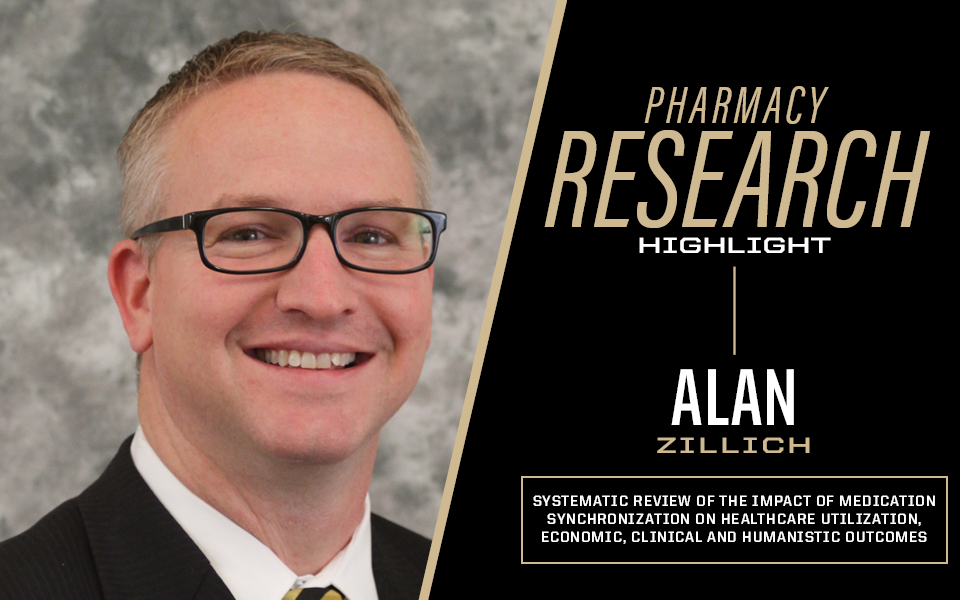
The Purdue College of Pharmacy honors and recognizes the outstanding research and scholarship generated by our faculty. This publication highlight recognizes Dr. Alan Zillich for the recent publication, "Systematic Review of the Impact of Medication Synchronization on Healthcare Utilization, Economic, Clinical and Humanistic Outcomes," which can be read in the Journal of the American College of Clinical Pharmacy.
A Purdue University College of Pharmacy researcher and his collaborators recently published a literature review identifying what clinical research is still needed to support the use of medication synchronization, or med-sync, programs.
Med-sync or appointment-based medication synchronization programs allow patients to align their chronic medication refills to a single day. According to Alan Zillich, the William S. Bucke Professor and Head of Purdue’s Department of Pharmacy Practice, it makes sense that these programs would help patients on multiple chronic medications more easily access and adhere to them.
He and his collaborators set out to review existing scientific literature on the subject, and what they found is a gap in clinical research about the efficacy of these programs.
The review started with a scientific literature search. Out of 1,617 search results, 27 studies were determined appropriate for inclusion in the review. The criteria were that the studies had to have been conducted at a pharmacy in the United States between January 2008 and October 2022, and evaluated the impact of med-sync on at least one of the four outcomes of interest: utilization, economic, clinical, and humanistic.
“We wanted to investigate the scientific literature to determine what patient-related outcomes were associated with medication synchronization programs,” Zillich said. “We were surprised to find there was limited evidence to demonstrate lower or cost-neutral outcomes associated with these programs.”
Why is this important? Because, according to Zillich, med-sync programs can be beneficial to both patients and pharmacies—but there is a lack of data to prove those benefits.
“Medication synchronization programs afford the opportunity to improve workflow within pharmacies while simultaneously mitigating certain patient barriers to taking medications as prescribed,” he said. “They also offer opportunities for pharmacists to provide counseling and care coordination. However, clinical outcomes for patients in these programs are not well documented in the scientific literature.”
Now that Zillich and his collaborators have identified this data gap, they are continuing to investigate patient outcomes associated with these pharmacy services. In fact, they have already investigated specific clinical and economic outcomes among a nationwide cohort of patients who were enrolled in med-sync programs and are continuing to analyze that data in hopes of showing just how mutually beneficial med-sync programs are and making the case for implementation.
Zillich’s collaborators on the literature review were Prajakta Waghmare, graduate student; Rachel Lindsey, PharmD student; Jason Reed, associate professor in Libraries and School of Information Studies at Purdue; and Sujuan Goa, professor of Biostatistics and Health Data Science at Indiana University School of Medicine.

